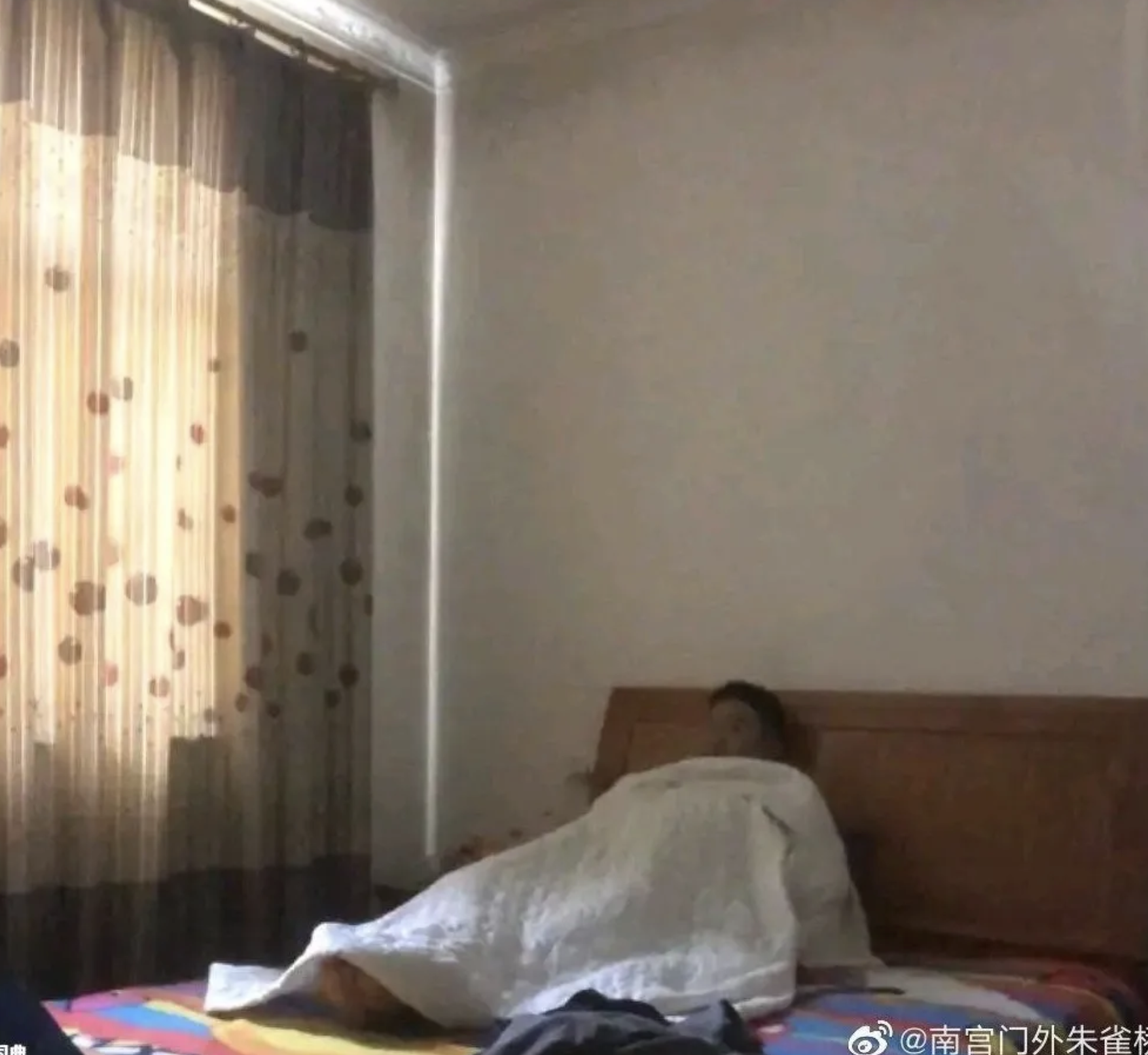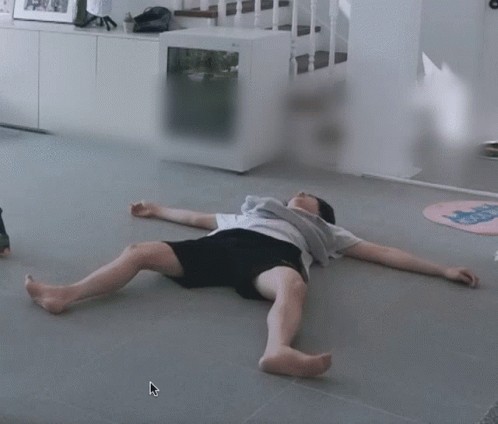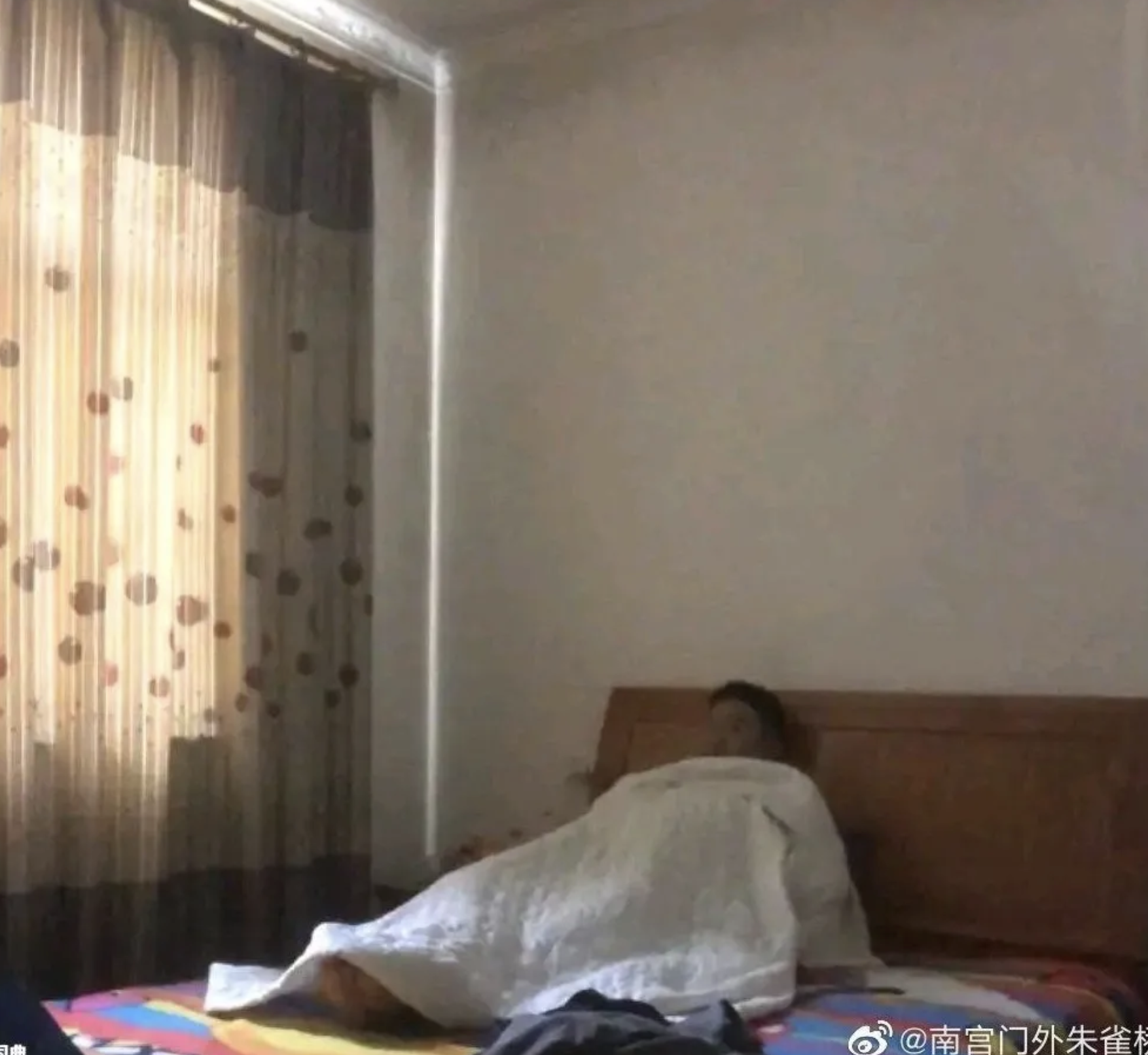What is “lying flat,” and how is the movement affecting Asia?
The lying flat movement is also known as "tang ping" in Chinese, and it’s a form of passive resistance against society’s pressures.

A few minutes every morning is all you need.
Stay up to date on the world's Headlines and Human Stories. It's fun, it's factual, it's fluff-free.
❓What’s going on?
Over the past few years, a movement has grown around the concept of “lying flat,” which is essentially doing the bare minimum to get by, opting out of life’s rat race entirely.
Recently, a study by the sociology department at Hong Kong Shue Yan University found that around 80% of secondary school students in Hong Kong are unsure about their path in life. They also found that a fifth of them have a “lying flat” perspective when it comes to their futures.
The lying flat movement is also known as "tang ping" in Chinese, and it’s a form of passive resistance against society’s pressures, especially when it comes to today’s intense work culture, high living costs and the competitive, materialistic lifestyle that younger generations are expected to have. The trend is all about focusing on personal well-being and happiness instead of chasing after material success. Young people who are choosing to lie flat do this by working less, consuming less and living a more minimalist lifestyle.
🤔What is driving this trend?
In April 2021, a post called “Lying Flat Is Justice” went viral on Chinese social media. The poster, Luo Huazhong, said he was living a minimalist lifestyle driven by a lack of hustle and ambition. Instead of working toward the typical milestones set for go-getters, like pursuing a successful career, buying a home, starting a family, etc., Luo was perfectly happy to live with his parents and skate by with as little effort as possible, all in an effort to avoid, and even rebel, against society’s pressures. But in Luo’s perspective, lying flat isn’t just about being lazy or unmotivated. He explained it as much more than that.

“Lying flat is a state of mind – that is, I feel that many things are not worthy of my attention and energy,” Luo said.
Since then, more and more of the younger generations are changing the way they see success and set goals. Traditional ideals of incessant hard work and material success are being pushed aside for modern values that prioritize individual well-being, happiness and mental health. A skyrocketing cost of living, inflation, the costs of raising children and education, intense competition in the job market and the climate crisis are all factors that are weighing in on this movement.
🌏The bigger picture – what does lying flat mean for society and the economy?

The drive for innovation and tech and business development set the stage for the “996” work culture – working from 9 a.m. - 9 p.m. six days a week. Lying flat is pushing back hard against this culture, with many saying the stress and harsh working environment is exactly what led to lying flat in the first place. This, compounded with other trends like “quiet quitting” (where employees basically phone it in at work with little drive or enthusiasm), could have some widespread effects on the workplace, businesses, the economy and society as a whole.
For society: In a lot of places in Asia, particularly in China, there’s an intense work culture that sets high expectations for productivity, and this translates to long hours and lots of competition. But young generations choosing to resist these pressures by lying flat could have wider social implications. The movement has sparked discussions about the value of personal happiness, mental health and work-life balance, challenging traditional ideals that favor hard work and material success.
On top of that, China and other Asian countries are seeing a population decline as young people choose to have fewer children, start a family later in life or not have any children at all. The effects of lying flat, which focuses on individual happiness rather than building a traditional family, could put more pressure on marriage and birth rates if it becomes a common lifestyle choice.
For the economy: A workforce following the lying flat mentality could have wider economic implications, with workers choosing to work less and even avoid high-stress, higher-paying jobs altogether. For companies that rely on ambitious, high-achieving workers to fill those roles, this could weaken the talent pool they’re drawing from, and recruitment and employee retention could become even more challenging. A 2022 PwC survey of 52,000 workers in 44 countries found that 20% of them planned to quit their jobs before the end of the year.
That’s on top of a skills shortage overall – a report from Poly Research the same year found that 60% of organizations surveyed in the APAC region believed that they were at risk of losing staff and being unable to attract new talent, compared with 53% in Europe, the Middle East and Africa (EMEA) and 53% in the Americas. Lying flat could shake things up for businesses and governments, as they’ll have to come up with new ways to engage with young generations entering university and the job market as well as adjusting incentives for young workers with different and changing values.
Another key element of the movement is living more minimally, so in the long run, it might even change the way people buy things, affecting industries like luxury retail, real estate, investing, travel and more.
🗨️What are people saying?
“At any time, no matter what stage of development, struggle is always the brightest base color of youth. In the face of pressure, choosing to ‘lie flat’ is not only unjust but shameful. There is no value whatsoever in this poisonous chicken soup.”
– A commentary from the Nanfang Daily.
“We need to help youths establish their life goals and direction, so they know what they need to do to achieve their targets and be motivated to improve themselves, resulting in them leading life more proactively.”
– Professor Cheung Yuet-wah, head of the Hong Kong Shue Yan University sociology department.
“[A] happy life is earned through hard work, while common prosperity is created through wisdom and diligence. [We] need to prevent [a] rigidity of social class, smooth the path towards climbing up the social ladder, create more opportunities for people to get wealthy, and hence form an environment where everyone can participate in its development, avoiding ‘involution’ and ‘lying flat.’”
– Chinese President Xi Jinping.
“China is now at a crossroads of becoming a high-income economy or finding itself stuck in the middle-income trap. The lying-flat movement would negatively affect China’s efforts to escape the middle-income trap.”
– Dr. Gavin Sin Hin Chiu to SCMP.
“Media reports decrying the laziness and lawlessness of rising young generations can be found in every decade going back over a century. In other words, this isn’t really anything new, in a general sense. But the difference this time around is that we are on the cusp of the “Fourth Industrial Revolution” and productivity shifts due to rapid advancement of technology over the past 20 years has exacerbated youth unemployment and uncertainty about the future. The most recent expansion of generative AI is a great example of technology that has and will continue to displace workers, especially young graduates, around the world. As a result, we are seeing similar patterns around the world:
1) Exacerbation of wealth inequality;
2) Increasing disparity in salaries between starting jobs and more senior staff;
3) Rapidly rising cost of living, especially around housing, while wages stay stagnant (or even decrease);
4) The largest class of university graduates ever, leading to increasing demand for jobs.
In other words, graduates have to work harder than ever to get jobs that pay less than comparable jobs have paid for decades.”
– David Bishop, associate professor of teaching at the Faculty of Business and Economics HKU Business School at The University of Hong Kong to TMS.
“The recent study highlighting secondary school students in Hong Kong who identify with lying flat due to uncertainty about life is not surprising. This highlights the impact of societal pressures on young individuals' mental health and well-being. Rather than blame the individuals, we must recognise the systemic issues contributing to their feelings of uncertainty and disillusionment.”
– Jess Hulton, Hong Kong lead, The New Normal (TNN) Charity to TMS.
“I think many of my peers have ever had such thoughts. Obviously, we have much fewer opportunities than our parents due to the global economic downturn. The information on the Internet has exposed me to more different viewpoints, and I no longer firmly believe that individual efforts can change destiny. And I am satisfied with my current living situation and don’t want to spend too much time and effort to improve my living standard. So, there's nothing wrong with lying flat.”
– Sarah Jia, a 24-year-old post-graduate student at HKU.
“I think most of them can understand why it came about, but if you ask me do they identify them with “lying flat,” my answer is no. Do you think they are really lying flat? No. It’s just taunting or self-deprecating; they always say that ‘Oh I am lying flat or 摆烂,’ but they still work hard. At least for the people around, it’s very hard for them to give up the cost they paid.”
– Yanan Qu, a 23-year-old postgraduate student at CUHK.





Comments ()